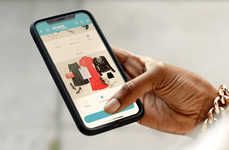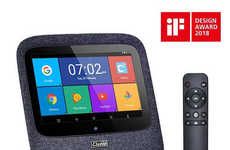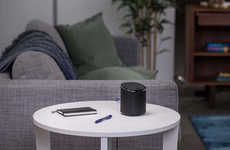



Virtual personal stylists in both design and fashion are on the rise
Trend - Modern technology, like assistive devices and smartphone apps, are aiding in the process of personal styling—whether that’s related to fashion or interior design. By empowering consumers through specialized technology, brands are able to make a once-exclusive industry more accessible to all.
Insight - Assistive technology hasn’t just made consumers’ daily routines and needs easier to tackle, it’s also streamlined everything from entertainment to design-related services for consumers. The benefit of these tech-powered services is that they open themselves up to consumers who wouldn’t be able to access or afford such services in their more traditional forms. Thus, streamlined apps and assistive device functions allow more people to be able to achieve the results they want in different areas of their lives, without the costs or exclusivity that once came alongside them.
Insight - Assistive technology hasn’t just made consumers’ daily routines and needs easier to tackle, it’s also streamlined everything from entertainment to design-related services for consumers. The benefit of these tech-powered services is that they open themselves up to consumers who wouldn’t be able to access or afford such services in their more traditional forms. Thus, streamlined apps and assistive device functions allow more people to be able to achieve the results they want in different areas of their lives, without the costs or exclusivity that once came alongside them.
Workshop Question - How is your brand using technology to prioritize accessibility for its customers?
Trend Themes
1. Assistive Styling Technology - Technology, like assistive devices and smartphone apps, are aiding in the process of personal styling—whether that’s related to fashion or interior design.
2. Personalization Services - Streaming apps and assistive device functions allow more people to achieve specific results in different areas of their lives through customized services.
3. Blockchain for Furniture Industry - Developing the world's first blockchain technology for the furniture industry allows for ad-hoc collaboration and profit-sharing mechanisms among interior designers, shoppers, and furniture businesses at scale.
Industry Implications
1. Retail Industry - Personal styling offered by retailers or through e-commerce platforms present a huge disruptive opportunity for the retail industry.
2. Home Decor Industry - Voice assistants such as Google Assistant can offer highly customized consumer experiences within the home leading to innovations in the home decor industry.
3. Interior Design Industry - Blockchain technology could disrupt the interior design industry by offering a more convenient and accessible experience for all, thus increasing collaboration between interior designers, shoppers, and furniture businesses.







































